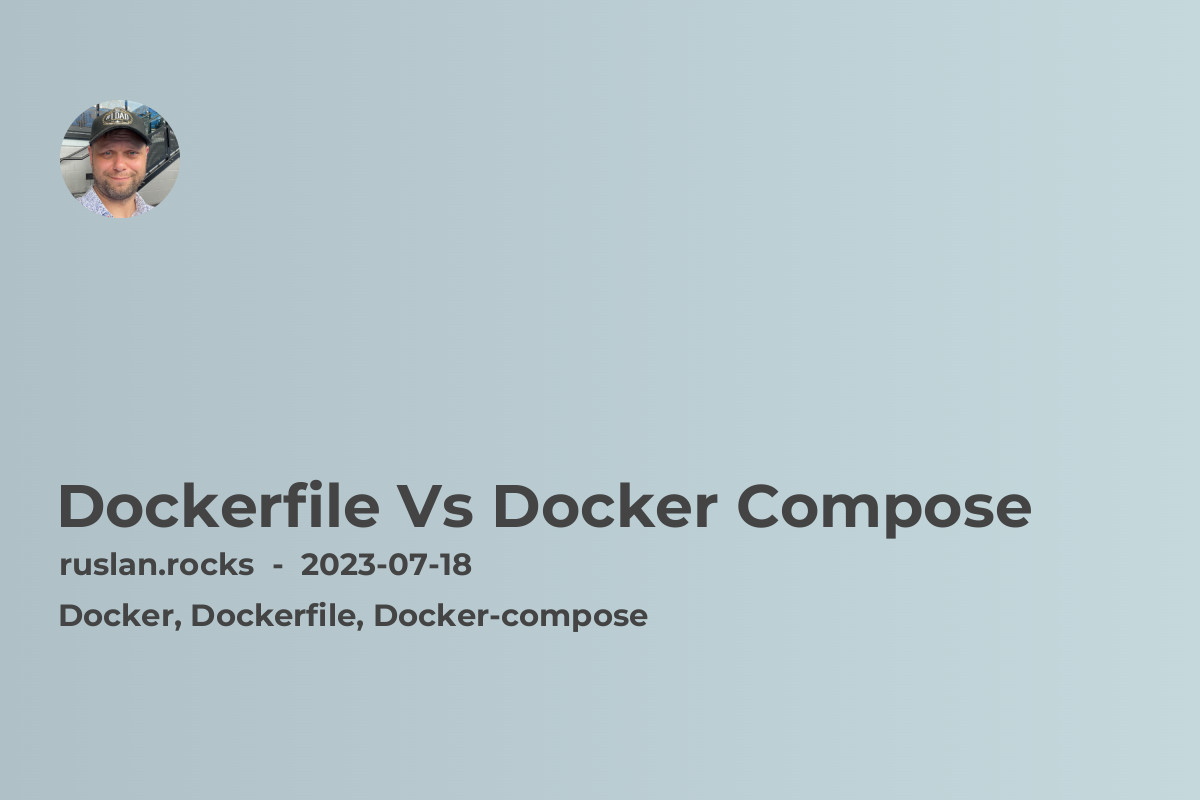- Dockerfile: Building Blocks of Docker Images
- Docker Compose: Orchestrating Multiple Containers
- Dockerfile vs Docker Compose: Which One Should You Choose?
- References:

When it comes to containerization with Docker, there are two essential tools that every developer should be familiar with - Dockerfile and Docker Compose. While both serve a similar purpose, they have different use cases and functionalities. In this article, we will explore the differences between Dockerfile and Docker Compose and help you decide which one to use for your specific needs.
Dockerfile: Building Blocks of Docker Images
A Dockerfile is a text file that contains a set of instructions for Docker to build an image. These instructions define the base image, configure the environment, install dependencies, and set up the commands to run when the container is launched. With a Dockerfile, you can define all the necessary steps to create a customized Docker image for your application.
Dockerfile is ideal for projects with straightforward deployments and minimal dependencies. It allows you to define and manage the software environment needed for your application to run. By specifying each step, you have full control over the image creation process. Dockerfiles are typically stored in the project's source code repository, making them easy to version and share.
However, Dockerfile has its limitations. When dealing with complex applications consisting of multiple containers, managing the dependencies and orchestration can become cumbersome. Here's where Docker Compose comes to the rescue.
Docker Compose: Orchestrating Multiple Containers
Docker Compose is a tool used for defining and running multiple containers as a single application. It uses a YAML file to describe the services, networks, and volumes required for your application's microservices architecture. With Docker Compose, you can define the relationships and dependencies between containers, making it easier to manage complex applications.
When working with a microservices architecture, Docker Compose shines. It allows you to define each component of your application as a separate service, with its own Dockerfile and configuration. By doing so, you can spin up the entire environment with a single command. Docker Compose also provides features like environment variable management, volume mapping, and automatic network creation, simplifying the process of deploying and scaling your microservices.
However, for smaller projects with straightforward deployments, Docker Compose may be overkill. If your application consists of a single container and doesn't require complex orchestration, sticking with a Dockerfile is usually sufficient.
Dockerfile vs Docker Compose: Which One Should You Choose?
The choice between Dockerfile and Docker Compose depends on the specific requirements of your application. If you're building a simple application with a single container, a Dockerfile is often the way to go. It gives you complete control over the image creation process and is easy to manage and version.
On the other hand, if you're working with a complex microservices architecture that requires orchestrating multiple containers, Docker Compose is the tool for you. It provides a simple and efficient way to define, deploy, and manage your application's infrastructure.
To summarize, Dockerfile is best suited for small, single-container projects, while Docker Compose excels in managing larger, multi-container applications. Depending on your needs, you can choose the most appropriate tool for your development workflow.
Remember, whether you choose Dockerfile or Docker Compose, the ultimate goal is to streamline your application's development and deployment processes. Choose the tool that best fits your needs and enjoy the benefits of containerization!

